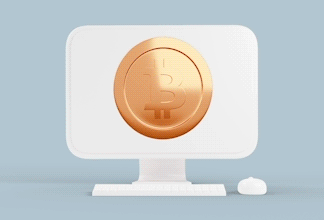Investing in the Future of Energy
Written by RBC iShares | Published on December 15, 2022
Written by RBC iShares | Published on December 15, 2022
The following is part of a series originally published by RBC iShares, a strategic alliance between RBC Global Asset Management and BlackRock Canada.
Over the past few years, there has been a surge in renewable energy adoption, along with clean energy investments and infrastructure builds. You may have noticed, whether it is a neighbour installing solar panels on their roof, or perhaps you drove by a wind turbine or electric vehicle charging stations as you headed down the highway. Extreme weather events are calling attention to the costs of climate change, and creating urgency to accelerate the green transition. It’s a monumental undertaking that could triple annual investment in clean energy by the end of this decade.1
The scientific consensus is that the global economy needs to quickly become less carbon-intensive to avoid continued extreme and catastrophic impacts. Transitioning away from fossil fuels, which now account for about 80 per cent of the total energy supply, will require major investments in new technologies, infrastructure, and projects designed to reduce this threat. By one estimate, meeting current carbon-reduction targets could require installing the equivalent of the world’s current largest solar park every day for the rest of this decade.
Given the magnitude of the changes, long-term investors may find opportunities in the underlying technologies involved in creating renewable energy sources or reducing the carbon intensity of energy production.
Forces driving the rise in clean energy
On the regulatory front, governments all over the world are working toward reducing the greenhouse gas emissions of their countries. Economically, advances in technology and economies of scale are decreasing the cost of renewable energy. On a societal level, consumers are increasingly willing to pay a premium for a green alternative. All these factors are moving together to push renewable energy adoption forward.
“We’re still very much in the early stages of this theme, despite the amount of attention it’s received,” says Jeff Spiegel, Head of U.S. iShares Megatrend and International ETFs for BlackRock. “In the United States, for instance, we’ve only hit 20 per cent of renewable energy production in terms of power generation, and still a large portion comes from geothermal or hydroelectric as opposed to solar and wind.”
The International Energy Agency estimates that to reach net-zero emissions, annual clean energy investments must at least triple to around US$4 trillion by 2030.2 Of the US$12 trillion to be invested in new power technology through 2040, three-quarters is expected to be invested in renewable supply.3
How do recent geopolitical events impact clean energy?
Russia’s invasion of Ukraine is exacting a horrific human toll. It also has wide social, political, and economic implications across the globe. For instance, we have seen rising commodity prices, which have translated to higher inflation for many regions.
Within about a week of Russia’s invasion, West Texas Intermediate Crude jumped to US$125 from US$91, while at-the-pump gas costs soared across the globe. Traditional energy stocks are benefiting from the higher prices, and the greater need for additional non-Russian supplies.
The higher energy prices are also fueling the need for many countries to accelerate the green transition. “We need to act now to mitigate the impact of rising energy prices, diversify our gas supply for next winter and accelerate the clean energy transition,” said European Commission President Ursula von der Leyen. “The quicker we switch to renewables and hydrogen, combined with more energy efficiency, the quicker we will be truly independent and master our energy system.”
Capture the clean energy growth opportunity
The increasing government support and growing consumer preferences are likely to spark breakthroughs in renewable energy, enabling scaled production and widespread adoption. It is not only an investment theme with immediacy due to recent geopolitical events, but also one with lasting long-term potential.
We are still in the early innings of transitioning to a low-carbon economy and clean energy adoption, with so many companies, including startups and more established operations, racing to innovate in this space. From power generation to energy storage technology to equipment manufacturing, it’s hard to know which companies will succeed. Buying a traditional broad-based index won’t provide the same access either: the S&P 500 Index, the most widely used proxy for the U.S. stock markets, offers just 0.6 per cent exposure to clean energy.
Thematic ETFs can be a way to access specific exposures to the industry.
Learn more in How to Find and Research ETFs.
1 International Energy Agency, “Net Zero by 2050: A Roadmap for the Global Energy Sector,” (revised 3rd version) July 2021.
2 International Energy Agency, The IEA at COP26
3 Bloomberg New Energy Finance Report 2018
RBC Direct Investing Inc. and Royal Bank of Canada are separate corporate entities which are affiliated. RBC Direct Investing Inc. is a wholly owned subsidiary of Royal Bank of Canada and is a Member of the Investment Industry Regulatory Organization of Canada and the Canadian Investor Protection Fund. Royal Bank of Canada and certain of its issuers are related to RBC Direct Investing Inc. RBC Direct Investing Inc. does not provide investment advice or recommendations regarding the purchase or sale of any securities. Investors are responsible for their own investment decisions. RBC Direct Investing is a business name used by RBC Direct Investing Inc. ® / ™ Trademark(s) of Royal Bank of Canada. RBC and Royal Bank are registered trademarks of Royal Bank of Canada. Used under licence.
© Royal Bank of Canada 2023.
iSHARES and BLACKROCK are registered trademarks of BlackRock, Inc., or its subsidiaries in the United States and elsewhere. Used with permission.
RBC iShares ETFs are comprised of RBC ETFs managed by RBC Global Asset Management Inc. (RBC GAM) and iShares ETFs managed by BlackRock Canada Limited (BlackRock Canada). RBC GAM and BlackRock Canada entered into a strategic alliance to bring together their respective ETF products under the RBC iShares brand, and to offer a unified distribution support and service model for RBC iShares ETFs.
There may be commissions, trailing commissions, investment fund management fees and expenses associated with investment fund and exchange-traded fund (ETF) investments. On or after June 1, 2022, any trailing commissions paid to RBC Direct Investing Inc. will be rebated to clients pursuant to applicable regulatory exemptions. Before investing, please review the applicable fees, expenses and charges relating to the fund as disclosed in the prospectus, fund facts or ETF facts for the fund. Mutual funds are not guaranteed, their values change frequently and past performance may not be repeated. For money market funds there can be no assurances that the fund will be able to maintain its net asset value per security at a constant amount or that the full amount of your investment in the fund will be returned to you.
Any information, opinions or views provided in this document, including hyperlinks to the RBC Direct Investing Inc. website or the websites of its affiliates or third parties, are for your general information only, and are not intended to provide legal, investment, financial, accounting, tax or other professional advice. While information presented is believed to be factual and current, its accuracy is not guaranteed and it should not be regarded as a complete analysis of the subjects discussed. All expressions of opinion reflect the judgment of the author(s) as of the date of publication and are subject to change. No endorsement of any third parties or their advice, opinions, information, products or services is expressly given or implied by RBC Direct Investing Inc. or its affiliates. You should consult with your advisor before taking any action based upon the information contained in this document.
Furthermore, the products, services and securities referred to in this publication are only available in Canada and other jurisdictions where they may be legally offered for sale. If you are not currently a resident of Canada, you should not access the information available on the RBC Direct Investing Inc. website.

The U.S. reciprocal tariffs announced have been large and broad-based, but critically exempt Canada and Mexico (at least for now)

Investor interest in Bitcoin is increasing – learn about crypto ETFs

The effects of tariffs can be wide ranging, both economically and behaviourally.